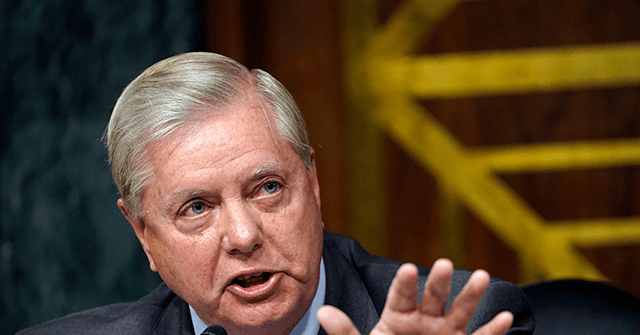Sen. Lindsey Graham’s recent letter to the International Criminal Court (ICC) in The Hague has brought to light significant tensions surrounding the court’s handling of accusations against prosecutor Karim Khan. Graham’s demand for “full transparency” comes in the wake of Khan’s pursuit of arrest warrants for Israeli Prime Minister Benjamin Netanyahu and Minister of Defense Yoav Gallant. This action has raised eyebrows, especially since Khan is also facing allegations of inappropriate sexual conduct. As the situation unfolds, it raises critical issues not only about the credibility of the ICC but also about its implications for international relations amid ongoing conflicts.
In a bipartisan effort, a group of U.S. Senators had previously urged Khan to adhere to established legal principles as outlined in the Rome Statute, particularly the principle of complementarity. This principle essentially states that the ICC should only intervene when national jurisdictions are unwilling or unable to prosecute serious crimes. Graham pointed to a May 1, 2024, phone call where Senators emphasized the importance of engaging with Israeli officials prior to taking any significant legal action. This context heightens the political stakes of Khan’s sudden decision to retract a planned visit to Israel and request arrest warrants instead, propelling the controversy over his motives and the legitimacy of his actions.
The announcement of arrest warrants for the Israeli leaders came as a shock to the U.S. Senate, particularly given the sensitive geopolitical climate. Graham specifically highlighted the inconsistency of Khan’s actions, suggesting that the accusations against him could be influencing his professional judgment and decision-making processes. Such allegations, which emerged around the same time as Khan’s abrupt shift in focus toward Israel, create a murky backdrop that demands clarity and accountability. Graham’s call for transparency aims to ensure that the ICC operates without bias or conflict of interest, which is crucial for maintaining trust in international legal institutions.
Netanyahu’s response to the ICC’s moves has been vehement, dismissing Khan’s actions as “blood libels” and firmly rejecting any notion that Israel and Hamas should be morally equated. This clash of narratives not only exemplifies the heightened tensions surrounding the ICC’s proceedings but also underscores the divisions in the international community regarding the Israeli-Palestinian conflict. The accusations against kernel Khan have the potential to further complicate these dynamics and challenge the ICC’s role as an impartial arbiter of international law.
The historical context surrounding U.S. relations with the ICC is also noteworthy. Under Donald Trump, U.S. sanctions were imposed on ICC officials who sought to investigate American soldiers or allies. However, President Biden revoked these sanctions, indicating a shift in approach regarding international accountability. The divergent policies illustrate the complex relationship between national interests and international justice mechanisms, particularly as they relate to powerful states like Israel and the implications for global governance.
As discussions continue regarding Khan’s conduct and the ICC’s impending actions, the intersection of legal, political, and ethical considerations will remain pivotal. With calls for full transparency from U.S. lawmakers, the outcome of this situation could have far-reaching consequences not only for Khan’s position but also for the credibility of the ICC as a whole. The spotlight remains on the ICC as it navigates these turbulent waters, with critical implications for how international conflicts are addressed and for the trust placed in global judicial institutions by member states.

